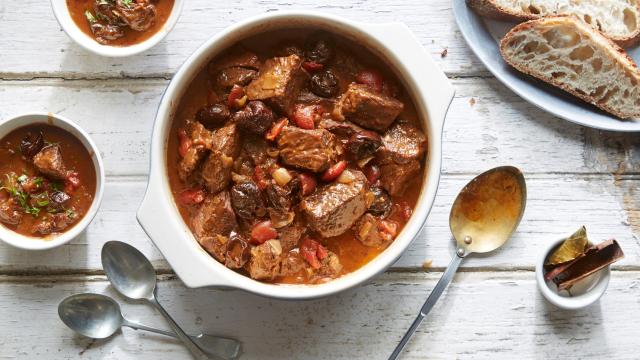I will not eat chilli the same day it is cooked. It’s not fair to the recipe, and it’s not fair to me. The same goes for stews, most braises, and (ideally) any meat-based pasta sauce. I don’t just let these things “rest” for a mere half hour nap; I let them get that good REM sleep.
I have been eating a lot of chilli recently, and the main thing I’ve learned is that letting things chill overnight is the easiest way to make any chilli recipe taste better. Letting rich, meaty, stewed dishes has several benefits. For one, the dish isn’t “done” just because you take it off the heat. According to TASTE, all sorts of stuff keeps happening in the pot as it cools:
Aromatics like onions, garlic, chiles, and spices release their volatile oils as they cook, and while they cool they continue to release. Meats release collagen as they cook, but when they cool down, they gelatinise and trap more of those aromatics.
The meat (and any beans) also absorbs moisture from the braising liquid, making it (and them) more tender and infusing everything with whatever spices, seasonings, and flavouring agents you may have added.
Then there is the matter of evaporation, which has some minor effects on texture and flavour. A steaming dish is a dish that’s losing moisture, but water will continue to evaporate from your chilli, stew, or sauce even in the fridge, concentrating the flavours (albeit on a small scale). Reheating leads to even more evaporation, which means your second or third bowl will be more intensely flavoured than the first.
Finally — and most importantly — even after you take your dish off the burner, there are still a ton of chemical reactions going on in that pot. According to Cook’s Illustrated, these reactions vary depending on what you put into your dish:
In the case of a soup or stew containing milk or cream, the lactose breaks down into sweeter-tasting glucose. Similarly, the carbohydrates in onions develop into sugars such as fructose and glucose. Proteins in meat turn into individual amino acids that act as flavour enhancers. Finally, starches in potatoes and flour break down into flavourful compounds.
Try it the next time you make a big batch of beef stew, chilli, or ragù. Have one bowl of the fresh stuff, then chill the rest overnight and see if you don’t notice a difference. The waiting may be the hardest part, but it’s one of the easiest ways you can improve your braises.

Leave a Reply
You must be logged in to post a comment.